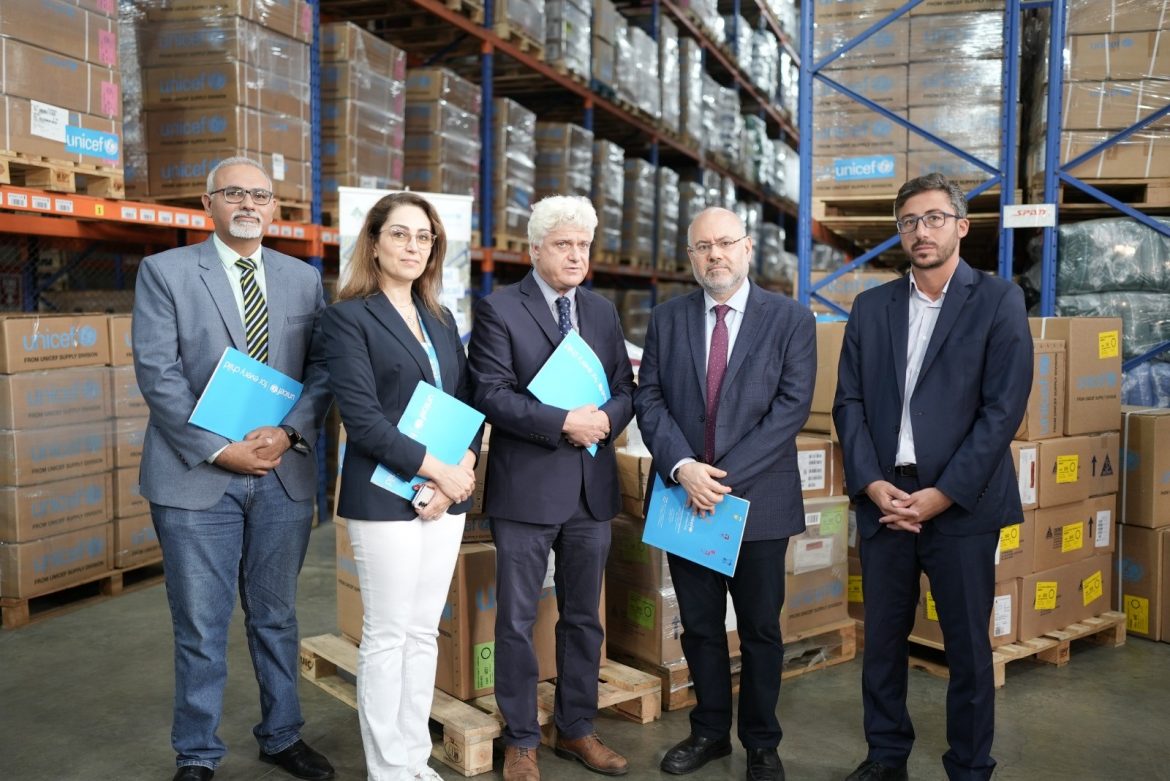09 September 2024 – UNICEF has procured and delivered 33 tons of lifesaving medical supplies to the Ministry of Public Health (MoPH) in response to the ongoing conflict in southern Lebanon and in preparation for any potential escalation in the country.
These essential medical supplies include emergency health kits crucial for hospitals treating injured patients; obstetric and midwifery kits to support healthcare facilities provide safe deliveries to pregnant women ; essential drugs and medications to treat acute and infectious conditions; and lifesaving kits to assist emergency response teams and ambulances providing first aid.
As part of UNICEF’s response to the ongoing conflict affecting Lebanon, these supplies will be distributed across public hospitals and health facilities in Lebanon to support the delivery of services for approximately 100,000 people affected by the conflict including children and women.
Minister of Public Health Dr. Firas Al-Abiad said: “In light of the increasing Israeli attacks, it was necessary for the health sector to increase its preparedness in anticipation of any possible developments. We thank UNICEF, for providing the Ministry of Public Health a remarkable quantity of medicines and supplies as part of its support to the preparedness plan. Most of the medicines provided are important for both mothers and children, in addition to emergency health supplies that will be distributed to hospitals and primary healthcare centers serving the displaced from south. In Addition, thanks to UNCIEF support, more than thirty mobile clinics are made available to reach the displaced and ensure they receive the medical services they need.”
“We are deeply concerned about the situation of children and families following the ongoing escalations in the country. Since the beginning of the conflict, 20 children have been killed, and more than 190 injured, as reported by the Ministry of Public Health, and more than 39,000 children have been displaced,” said UNICEF Representative in Lebanon, Edouard Beigbeder.
“Lebanon cannot afford a war to be added to its list of crises, especially when essential services, including health care, are already on the brink of collapse after years of being overstretched. The essential medical supplies delivered today will help ensure health care facilities across Lebanon are prepared in case of any further escalation. We renew our call for an immediate ceasefire and the protection of children and civilians.”
Over the coming days, UNICEF will deliver the supplies directly to the list of health facilities and hospitals identified by MoPH.
As part of joint efforts to ensure access to healthcare services for everyone affected by the conflict, UNICEF will be procuring and distributing additional medications and medical supplies to support 200,000 affected individuals, including women and children. In addition, UNICEF remains committed to sustaining essential health service delivery through mobile units operated by PHCC centres, serving displaced populations and affected host communities.
About UNICEF
UNICEF works in some of the world’s toughest places, to reach the world’s most disadvantaged children. Across 190 countries and territories, we work for every child, everywhere, to build a better world for everyone. For more information about UNICEF and its work for children and young people in Lebanon, please visit www.unicef.org/Lebanon.
Follow UNICEF on Twitter, Facebook, Instagram and Youtube

